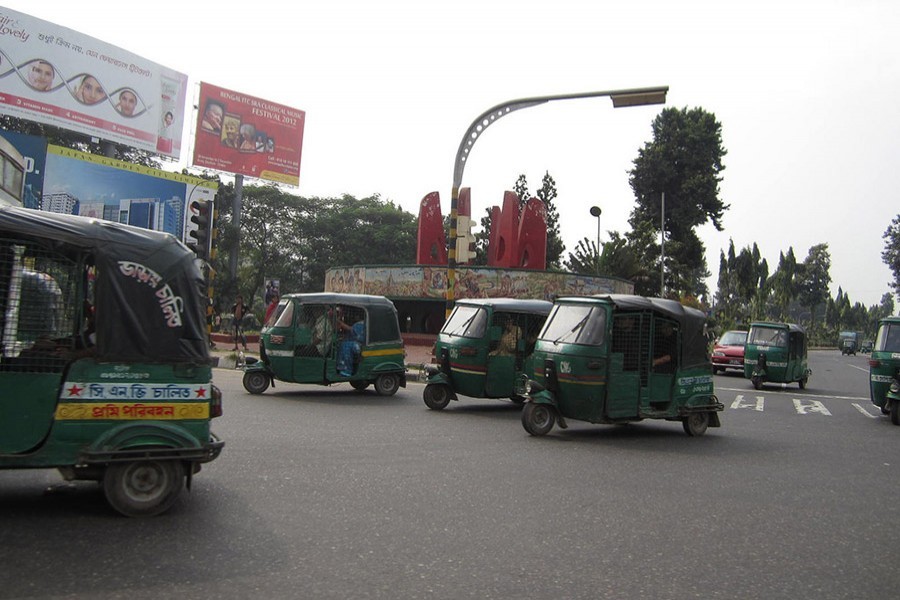The longevity or useful life -- technical term is economic life -- of the 13,000 CNG-driven auto-rickshaws imported in the year 2000 is long over. Actually, they had to be disposed of two years ago but in the face of protests from owners and drivers, the authorities extended the permission for their operation three times. Now, the Ministry of Road Transport and Bridges has directed the Bangladesh Road Transport Authority (BRTA) to start the process of scrapping the time-expired vehicles - not at a time but in phases. To that effect the ministry has also provided a guideline for completion of the task. Under this, a committee to be formed will oversee the withdrawal of old vehicles and their replacement by new ones. But there is no guarantee that the phasing-out programme will go smoothly. It is because of the perception of owners and drivers who are yet to reconcile with the idea that their vehicles have run out of time. If safety concerns were high on their minds, they would not disagree with the expert committee of the Bangladesh University of Engineering and Technology (BUET), which has found the vehicles no more road-worthy.
In a country where ramshackle public buses are allowed to operate well beyond their life span, such unreasonable demands from auto-rickshaw owners and drivers certainly gain some grounds. Compared to buses, maintenance of auto-rickshaws is easier and those are taken better care of than buses. So their owners and drivers may think their vehicles are in a sound condition. But the mechanical and technical expertise required for determining the life span of auto-rickshaws is lacking on their part. The company/companies responsible for their construction are the best judge in this regard. They determined at the time of their manufacture a life span.
The safety of passengers and drivers counts first. Here is a symptom of underdeveloped mentality that gets the better of logic and expert knowledge. This should not be the case. Auto-rickshaw owners have not the flexibility of bus owners because usually they are small investors in the transport business. Not many could expand their fleet for understandable reasons. Mostly families of owners and drivers depend on proceeds from the vehicles' operation. So they do not find themselves in an enviable position with the prospect of losing their source of income. No wonder, they have already called a countrywide strike.
In a situation like this the authorities should also think of ways and means to helping the affected owners and drivers out. This will not be easy but under a well formulated programme support to them can be extended. Facilities for loans and deferred payment or payment in instalments of the price of new auto-rickshaws may be of help. Already, auto-rickshaws face stiff competition from shared ride systems operated by some apps-based companies. If their operation gets streamlined, making it mandatory for use of meter, the service may be competitive. The future of auto-rickshaws will depend on their adaptability.


